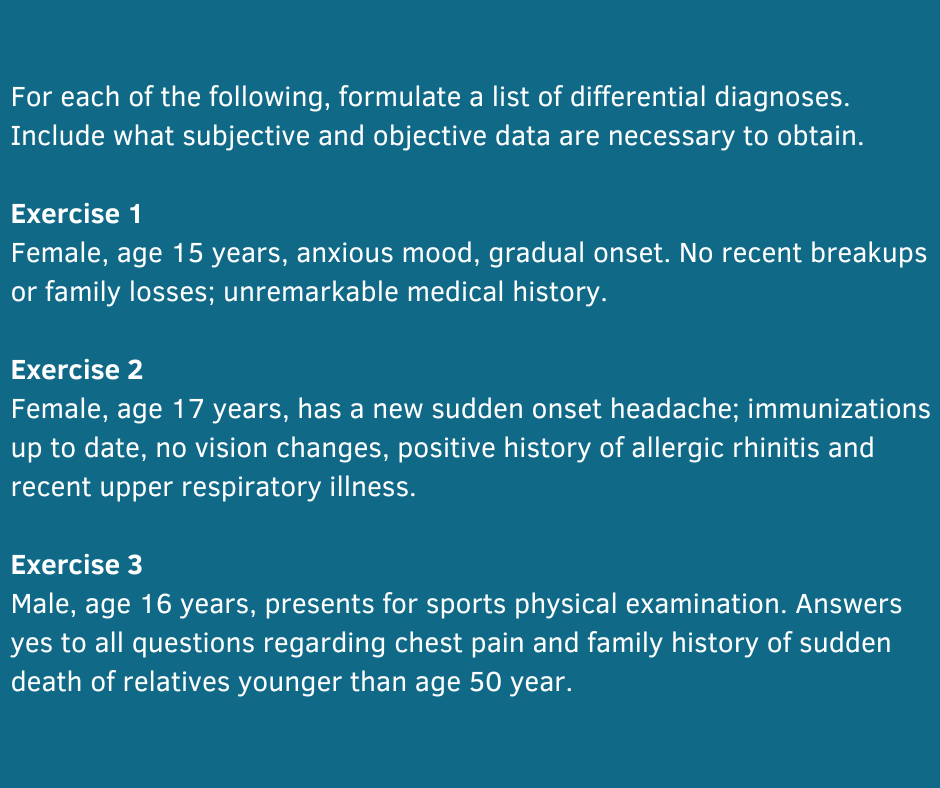
Creative Approaches to Engage Students in Diagnostic Reasoning for Child Assessment
Teaching diagnostic reasoning in child assessment, particularly with special considerations, can be a complex yet rewarding endeavor. Engaging students in this nuanced subject requires a thoughtful approach that bridges theory with practice. Here are some effective strategies to ensure that learning about diagnostic reasoning becomes an interactive and enriching experience for your students.
1. Bring Real-World Scenarios into the Classroom
Real-life case studies are invaluable for illustrating the complexities of diagnostic reasoning. By presenting students with detailed case studies—especially those that involve unusual or intricate challenges—you help them connect theoretical knowledge with practical application. Discussing cases where diagnostic reasoning was critical offers students a concrete understanding of how to navigate similar situations in their future careers.
2. Engage Through Interactive Simulations
Interactive simulations allow students to step into the shoes of a child psychologist. Create role-playing scenarios where students must assess a child’s developmental milestones, behavioral issues, or special needs. This hands-on approach not only makes learning more engaging but also helps students apply their knowledge in a controlled, yet realistic environment.
3. Leverage Multimedia Resources
Incorporating videos, podcasts, and interactive media can make the learning experience more dynamic. For example, showing clips of actual child assessments or interviews with experienced professionals can provide students with diverse perspectives and practical insights. Multimedia resources cater to various learning styles and can make complex concepts more accessible.
4. Invite Guest Speakers
Bringing in guest speakers who specialize in child assessment can greatly enhance the learning experience. These professionals can share their firsthand experiences, discuss the latest trends and challenges in the field, and answer students’ questions. Their real-world expertise provides valuable context and inspiration for students.
5. Foster Group Projects and Discussions
Encouraging students to work in groups on case studies or diagnostic projects can stimulate collaboration and critical thinking. Group discussions about different diagnostic approaches and potential outcomes allow students to explore diverse perspectives and deepen their understanding of complex cases.
6. Incorporate Technology
Modern diagnostic tools and software can be integrated into the curriculum to provide practical experience. Familiarizing students with these technologies not only enhances their technical skills but also prepares them for the tools they will use in professional settings.
7. Gamify the Learning Experience
Gamification can make learning about diagnostic reasoning both fun and competitive. Develop quizzes, puzzles, or simulation games that challenge students to apply their knowledge in engaging ways. This approach motivates students to actively participate and reinforces their learning through interactive play.
8. Encourage Reflective Practice
Reflective practices, such as journaling or group reflections, allow students to think critically about their learning experiences. Encouraging them to reflect on what they have learned and how they might apply it in various scenarios helps consolidate their knowledge and develop a deeper understanding of diagnostic reasoning.
9. Design Hands-On Activities
Hands-on activities, such as mock assessments or using diagnostic tools, can bring theoretical concepts to life. Allowing students to practice these skills in a structured setting helps them gain confidence and competence in their diagnostic abilities.
10. Personalize the Learning Experience
Tailoring assignments and projects to students’ interests or career aspirations can increase engagement. If students are particularly interested in specific areas of child development or special needs, incorporate those topics into lessons to make the content more relevant and compelling.
11. Provide Constructive Feedback
Regular, constructive feedback is essential for growth and improvement. Provide students with timely and specific feedback on their diagnostic reasoning exercises and encourage them to revise and improve based on this feedback. Iterative learning helps solidify understanding and enhances their diagnostic skills.
In the text Advanced Pediatric Assessment, you'll find various critical thinking case study exercises designed to help your students develop differential diagnoses.


Making diagnostic reasoning in child assessment engaging requires a mix of innovative teaching strategies and practical applications. By incorporating real-world scenarios, interactive simulations, multimedia resources, and hands-on activities, instructors can create a dynamic and enriching learning environment. Engaged students are more likely to retain information, apply their knowledge effectively, and be better prepared for their professional roles in child assessment. Embrace these strategies to transform your classroom and inspire the next generation of child assessment professionals.
Developing the skills to formulate differential diagnoses in children is a process that evolves with experience. When diagnosing children, it’s crucial to account for their age and developmental stage in considering potential diagnoses. Adopting a systematic approach and minimizing biases are key to reducing errors. Providers should also recognize the importance of seeking assistance when needed and committing to ongoing learning to maintain diagnostic accuracy.
Request a desk copy of Advanced Pediatric Assessment today and explore all of the educator resources that make this text an easy choice to implement into your course!

